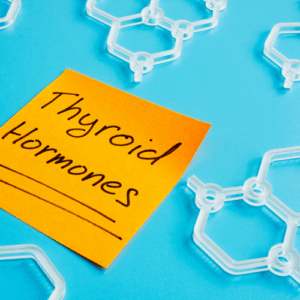Thyroid Series, Part 2:
The Tests That Really Matter
Have you ever been told your labs are “normal” but you still feel awful?
You are tired, cold, forgetful, and gaining weight. You finally ask your provider to check your thyroid. They run one test. They say everything looks fine. But you know something is not right.
If that sounds familiar, you are not alone.
Most routine thyroid checks only look at one number. But your thyroid is more complex than that. To really understand what is going on, you need a full thyroid panel.
The Standard Test: TSH
TSH stands for thyroid stimulating hormone. This hormone comes from your brain. It tells your thyroid how much hormone to make. When your thyroid is too slow, your TSH goes up. That is why most providers only check TSH.
But here is the problem. TSH does not tell the whole story. It can be in the normal range even if your body is not getting enough thyroid hormone. And it does not explain why your thyroid is struggling in the first place.
What Else Should You Check?
To truly understand your thyroid, you need more than just a TSH. A complete thyroid panel includes:
- Free T4: This is one of the main hormones your thyroid makes. It is not active yet, but it is the starting point. Low free T4 usually means your thyroid is not making enough hormone.
- Free T3: This is the active form of thyroid hormone. Your body makes it by converting T4 into T3. This step happens mostly in your liver and gut. You need enough T3 to feel your best. Some people have normal T4 but low T3, which is often missed if only TSH is checked.
- Reverse T3: This is an inactive form of T3. When you are stressed or inflamed, your body may make more reverse T3 instead of active T3. That slows everything down and can make you feel worse.
- TPO Antibodies: These check for Hashimoto’s disease, which is the most common cause of hypothyroidism. If your body is making TPO antibodies, it means your immune system is attacking your thyroid.
- Anti-TG Antibodies: These are another type of antibody that can show up in autoimmune thyroid disease. They also help confirm a Hashimoto’s diagnosis.
Why Do These Tests Matter?
A full panel gives you the full picture. It shows how much hormone your thyroid is making, how well your body is using it, and whether your immune system is involved.
If your provider only checks TSH, they might miss:
- Low T3, even when T4 is normal
- Poor conversion of T4 to T3
- High reverse T3 from stress
- Early signs of Hashimoto’s before your TSH changes
You deserve answers. You deserve to feel good in your body again. Do not settle for a single lab test that leaves you confused or ignored.
- Ready to learn more? Schedule a FREE Consultation with Parker Mason Wellness now.
Coming next: In Part 3, we will talk about what you can do to treat hypothyroidism, from lowering inflammation and stress to using the right medication when needed.






